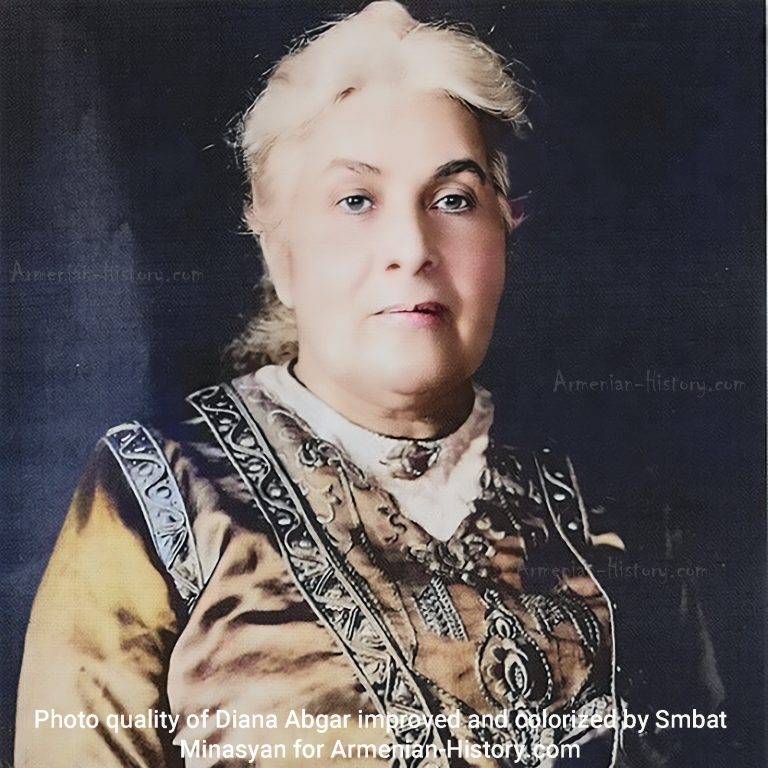Diana Abgar (1859–1937), born as Gayane Aghabekyan (Դիանա Աբգար), was a pioneering figure in Armenian diplomacy, literature, and humanitarianism. In 1920, she was appointed as the Consul General of the Republic of Armenia in Japan, becoming not only the first Armenian woman diplomat but also one of the first female diplomats in modern history.

Early Life and Background
Diana Abgar was born on October 12, 1859, in Rangoon, Burma (present-day Yangon, Myanmar), into a prominent Armenian family. She was the youngest of seven children. Her father, an Indian-Armenian merchant, had migrated from New Julfa, Persia (modern-day Iran), while her mother, Avet, came from the notable Tateos Avetum family of Shiraz, Iran.
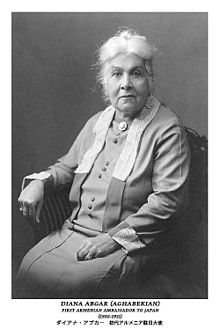
Raised in Calcutta, India, Diana received her education in a local convent school, where she became fluent in English, Armenian, and Hindustani. In 1889, she married Hong-Kong-based Armenian merchant Mikhael Abgar (Abgaryan), whose family also traced its roots back to Persia. The couple later moved to Kobe, Japan, where they established a successful trading business.
Life in Japan and Humanitarian Efforts
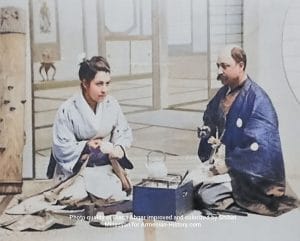
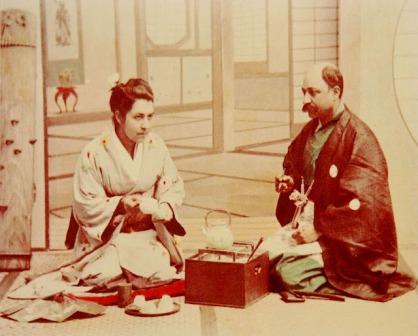
After relocating to Kobe, Diana and Mikhael Abgar became influential figures in the Armenian diaspora community in Japan. Despite personal tragedies, including the loss of two of her five children, Diana devoted herself to humanitarian work. During the Armenian Genocide, she actively supported the cause, raising awareness through her writings and providing assistance to refugees.
Abgar began her literary career in Japan, publishing her first novel “Suzan” in 1882. She wrote extensively on topics such as the plight of the oppressed, international relations, and the consequences of imperialism. By 1920, she had authored over nine books and numerous articles, many of which addressed the horrors of the Armenian Genocide and called for international recognition and justice.
Diplomatic Career and Legacy
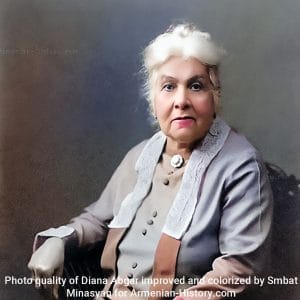
In 1920, Diana Abgar’s efforts culminated in Japan becoming one of the first countries to recognize the independence of the First Republic of Armenia. In recognition of her dedication, Hamo Ohanjanyan, then Foreign Minister of Armenia, appointed her as the Honorary Consul to Japan. However, her post was abruptly terminated following the Sovietization of Armenia later that year.
Diana Abgar continued her humanitarian and literary work until her death on July 8, 1937, in Yokohama, Japan. She was buried in the cemetery for foreigners beside her husband. Her grave is currently maintained by the Society of Armenian-Japanese Friendship in Tokyo.
Literary Contributions
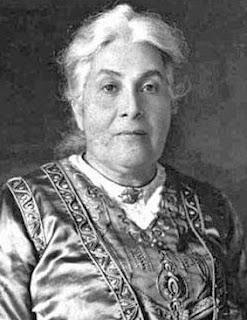
Abgar’s literary contributions are as significant as her diplomatic achievements. She used her writings to shed light on the plight of Armenians and advocate for global peace and justice. Her works, including “Peace and No Peace” (1912) and “Home Stories of the War” (1915), remain poignant reminders of her commitment to humanitarian values.
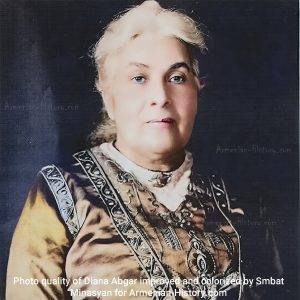
Diana Abgar’s life and work continue to inspire many, representing the resilience and strength of the Armenian people. She broke barriers as a female diplomat and left an indelible mark on the history of Armenian diplomacy and literature. In 2011, she was posthumously awarded the Medal of Honor by the Armenian government for her exceptional service to the Armenian nation and diaspora.
source: armenian-history.com

